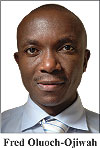It was very interesting watching how all the East African Community (EAC) finance ministers delivered their individual budget speeches. The fact that we could even compare the individual strengths of each EAC member country’s budgets provided commentators with an estimate of what each state brings to the table as the final lap of the EAC grand project-the political federation beckons.


It was very interesting watching how all the East African Community (EAC) finance ministers delivered their individual budget speeches. The fact that we could even compare the individual strengths of each EAC member country’s budgets provided commentators with an estimate of what each state brings to the table as the final lap of the EAC grand project-the political federation beckons.
On average, the huge budgets were an indicator of EAC’s huge economic potential in line with our collective future aspirations to be a single mega state.
While the size of individual budgets is an expression of how member countries stand to benefit from the political federation, the individual focus is on the five finance chiefs.
While the Finance Minister John Rwangombwa delivered a budget whose theme touched on three main items of food security, price stability and sustenance of economic growth, it is the issue of rising inflation in Rwanda that seemed to have taken his prime focus.
The volatilities arising out of the turmoil in Middle East, Rwamgombwa said, means that Rwanda has to stay more vigilant so that food supply and by extension general price stability is ensured.
Fuel prices in Rwanda have been rising steadily in the last one year or so. For a country located at the farthest end of the EAC general fuel supply route that snakes from the ports of Mombasa or Dar es Salaam, it means that the current headache occupying the minds of policy planners in Rwanda, during the course of the new fiscal year will be the taming of fuel prices.
Fuel prices in Rwanda rose highly when the government subsidy of 40 percent was scrapped in line with aligning Rwanda with the EAC’s uniform fuel tax system. Such realignment naturally meant that Rwandans had to contend with paying for more than their average EAC counterparts.
The average pump prices for both petrol and diesel in Rwanda currently standing at Rwf 1,060 per litre are higher than the regional averages of Rwf 839 per litre for petrol and Rwf 816 per litre for diesel.
Such a situation, Rwangombwa said, was not only untenable but it contributed to Rwanda’s domestic inflation. One of the key interventions through this year’s budget, meant that in order to contain inflation, one of the remedies was to influence the direction of pump prices by lowering taxes.
The government has no control over the situation unfolding in the Middle East.
This means that government could only exert influence on the pump prices through reduction of taxes to stabilise local prices. General price stability ultimately leads to checking rising inflation. On the other hand, price shocks are likely to lead to higher inflation. Such a situation not only threatens food security but also the country’s macroeconomic stability. Rwangombwa told parliament that it is very important for planners to sharpen their ability to deal with any eventuality arising during this new fiscal year.
By April this year, Rwanda’s inflation had surged by more than four percent proving to be a much more challenging year for planners such as Rwangombwa.
The budget statement says that to deliver a cushion to the economy, the slashing of tax on fuel is meant to stabilise inflation during the course of the new fiscal year.
The author is an editor with The New Times


